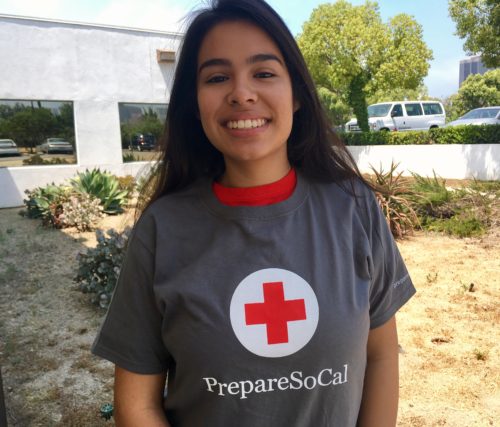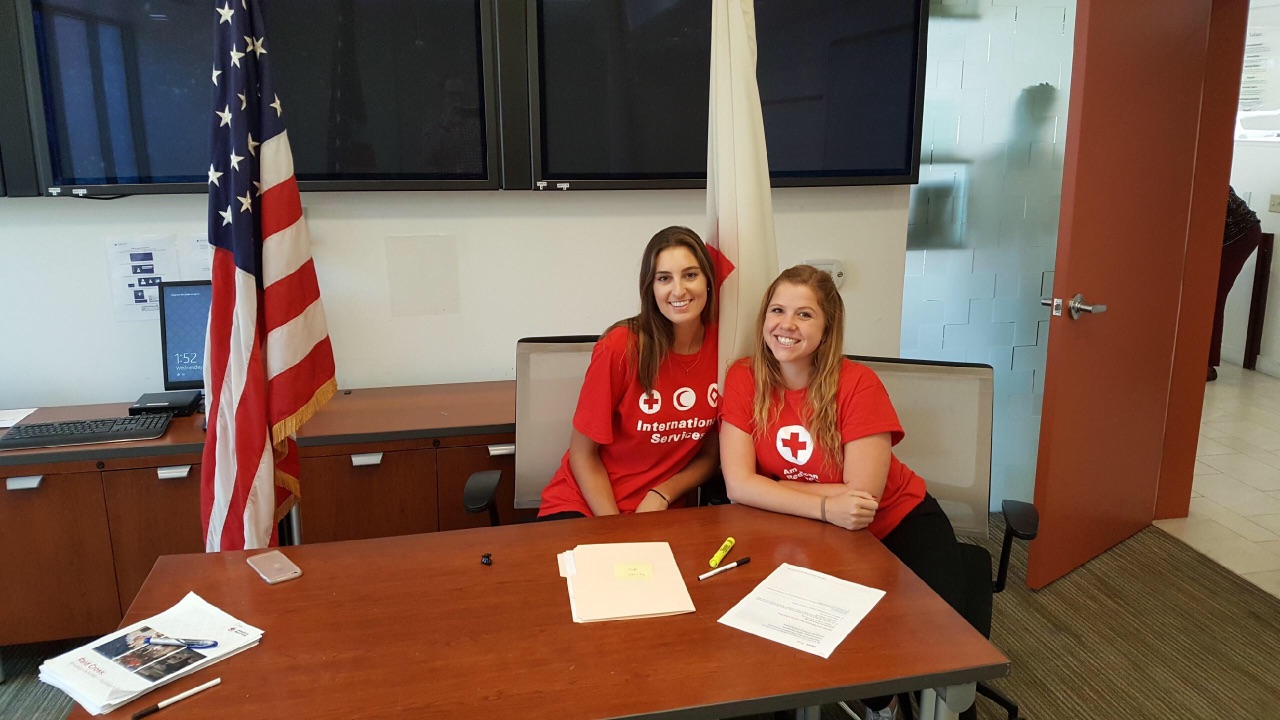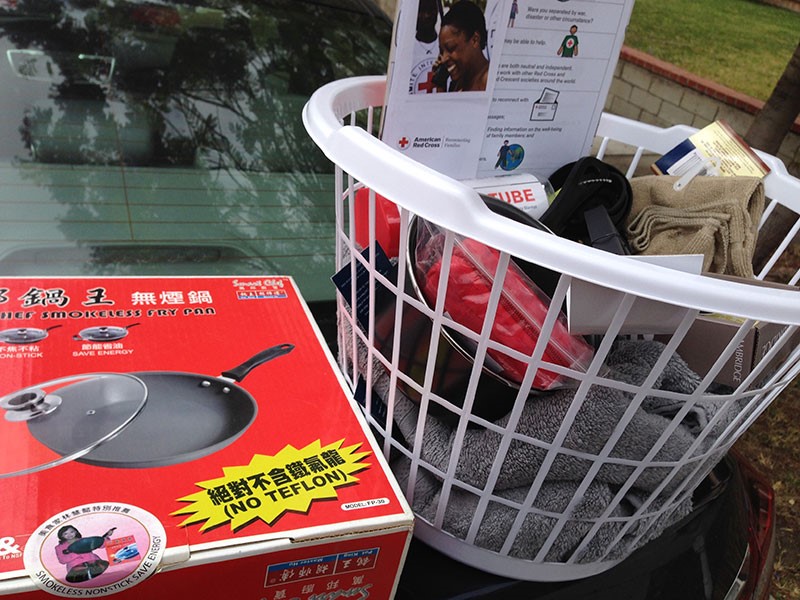By Communications and Marketing Intern, Alessandra Pacheco
Imagine that war has broken out in your country. A draft has been put out and you’ve been selected. Now you have a duty to protect your country.
You’re now a newly trained soldier in the middle of a war zone, surrounded by the enemy. Then you and your fellow soldiers are taken hostage.
Now, you’re caught in the war chaos— a war prisoner.
Do you have rights anymore?
**********************
A group of Summer Interns (myself included) and Red Cross volunteers were placed in similar situations during a recent event at the Los Angeles Region Headquarters called, Raid Cross. Everyone had roles to play to show the different perspectives and walk away with a better understanding of what it would be like to be a prisoner of war; or an aid worker, or an emergency responder— as well as what rights you have if you were ever in that situation. 
First, we were made to walk around the “camp,” and told to obey the enemy guard. We were left in less than suitable conditions, made to dig imagery holes, and not given any food or water (all pretend, of course).
If this were to happen today in war, one would look to the Geneva Conventions (created in 1949 shortly after World War II), which led to the creation of International Humanitarian Law.
International Humanitarian Law is a collection of rules for war: how you can treat prisoners, if attacking areas populated with civilians is a justified war benefit, and more.
After the event, I knew I had learned a lot, but I wanted to hear what other interns had to say, and asked Katie Han, a fellow Summer Intern, to reflect on the event. “Before doing Raid Cross I barely knew anything about International Humanitarian Law. By participating, I learned not to take my own human rights for granted!” 
International Humanitarian Law only applies in armed conflicts where there are two clear opposing sides. It does not apply to internal domestic disturbances within a country, as those nation’s domestic laws would apply, instead.
With all this information being shared, it’s safe to say that no matter who you are, or what your opinion about war is, International Humanitarian Law will always have your back.
For more information on what Raid Cross is and how the Red Cross is involved, email
youthinvolvement@redcross.org , or check out this link: http://www.redcross.org/humanityinwar/for-students .
 Alessandra Haro-Pacheco will be a Senior at Da Vinci High School. She hopes to become an accomplished author and editor, and enjoys watching basketball. This is Alessandra’s first year interning with the American Red Cross.
Alessandra Haro-Pacheco will be a Senior at Da Vinci High School. She hopes to become an accomplished author and editor, and enjoys watching basketball. This is Alessandra’s first year interning with the American Red Cross.





